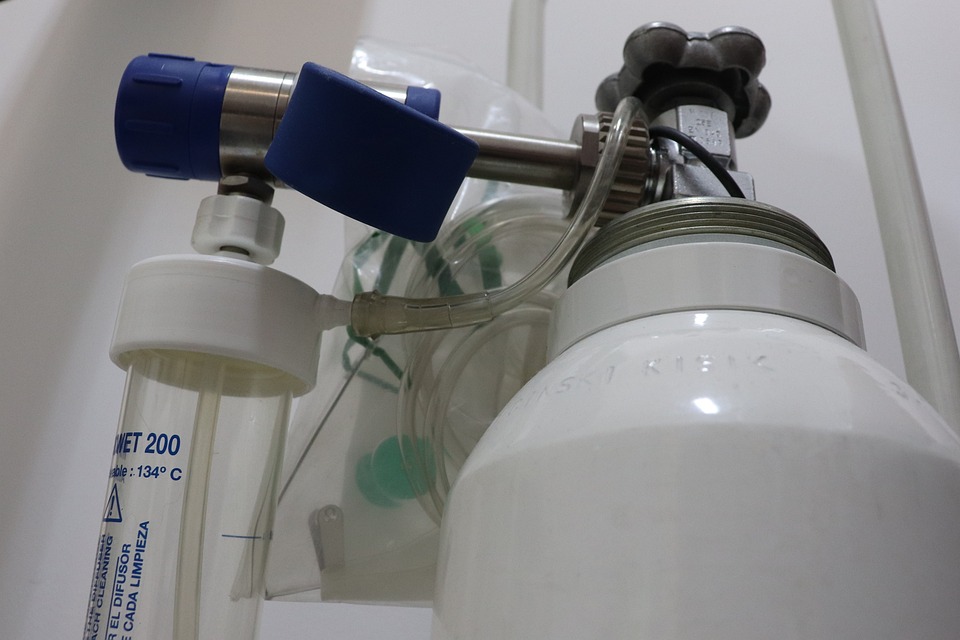Pneumonia that is contracted in the general public, not in a medical or hospital environment, is called “community-acquired bacterial pneumonia.” NUZYRA is in a drug class called tetracycline antibiotics. It works by preventing bacteria from growing and spreading. NUZYRA (omadacycline) is an orally ingested medication that can be prescribed to cure community-acquired bacterial pneumonia as well as bacterial skin and skin structure infections acquired acutely.
NUZYRA can be taken orally in the form of a pill. In addition, the intravenous form that is given via injection will be mentioned, but the main focus of this article will be on the pill form that is taken orally.
What is the Drug for?
NUZYRA is a medication prescribed for grown-up patients with lung infection caused by bacteria outside of a healthcare setting (known as community-acquired bacterial pneumonia, or CABP).
Pneumonia is a type of lung infection. CABP develops in individuals who have had no exposure or only a minimal amount of exposure to hospitals or medical facilities.
How is this Drug used?
A healthcare professional administers NUZYRA intravenously through a syringe inserted into a vein across a 60-minute time frame, lasting for anywhere between 7 and 14 days.
NUZYRA can be taken orally in the form of a pill once a day for between a week and two weeks.
What are the benefits of this drug?
NUZYRA had comparable effects to moxifloxacin (a drug utilized to cure CABP) in enhancing the indicators and manifestations of pneumonia (coughing, mucus production, chest agony, or lack of breath).
How to Take NUZYRA
Carefully read the instructions on your NUZYRA prescription and accompanying medication guide. Consult your healthcare provider if you have any questions.
Follow the instructions given by your doctor precisely when taking NUZYRA, and never miss a dose.
Consume the tablets with a glass of water on an empty stomach, at least four hours after you ingested anything other than water.
After taking NUZYRA:
- Do not eat or drink anything except water for at least two hours.
- Do not consume dairy (e.g., milk, cheese, yogurt) for at least four hours.
- Do not take iron-containing vitamins or minerals for at least four hours.
- Do not take an antacid (such as Rolaids or Tums) for at least four hours.
Complete the full cycle of medication even if you begin to feel improved. If you don’t take your doses as prescribed or you discontinue the medication too early, you run the risk of your sickness coming back or the bacteria become resistant to the antibiotic. It is possible that the medicine may not be effective when it is next used.
NUZYRA may increase your sunburn risk. Avoid the sun and tanning beds. If you are outside, it is important to put on clothing that covers most of your body, and apply sunscreen with a minimum SPF rating of 30. Be sure to reapply sunscreen regularly.
Storage
Keep NUZYRA stored away from direct light, heat, and moisture at room temperature (68 – 77 F). Ensure the container it is kept in is labeled properly and is out of the reach of children and animals in order to prevent any accidents. Ensure the bottle is secured when not being utilized.
What are the possible side effects?
The trial showed all fatalities to be in people aged 65 or over, particularly in those who were given NUZYRA and who were aged 65 or over.
NUZYRA like other antibacterial medications called tetracyclines may cause serious side effects including:
- permanently turning a child’s teeth yellow, gray, or brown from birth to 8 years of age
- slow bone growth
- diarrhea caused by an infection called clostridium difficile
The most frequent outcomes are raised liver tests, hypertension, insomnia, vomiting, constipation, and nausea.
Severe Side Effects
Contact your medical care provider immediately if you experience serious side effects. If you are experiencing symptoms that feel life-threatening or you believe you have a medical emergency, dial 911 immediately. Serious side effects and their symptoms can include the following:
- Hypersensitivity reaction or anaphylaxis: Symptoms can include rash, hives, swelling around the lips, tongue, and face, difficulty breathing, and require emergency medical attention.
- Sun sensitivity: Wear protective clothing while outside. Apply (and frequently reapply) sunscreen of at least SPF 30. Avoid the sun and tanning beds.
- C. difficile-associated diarrhea: This type of diarrhea can occur with any antibiotic. It can cause severe, watery, and/or bloody diarrhea and stomach pain. This diarrhea can occur several months after finishing an antibiotic and can range from mild to life-threatening and, in some cases, can cause death if not treated.
- Pseudotumor cerebri: Increased pressure in the skull; symptoms may include severe headaches, ringing in the ears, dizziness, nausea, vision disturbances, and pain behind the eyes.
- Anemia: Low red blood cells – symptoms may include tiredness, weakness, pale skin, chest pain, and cold hands and feet.
- Superinfection: A second infection that occurs after the first infection, such as a yeast infection.
- Atrial fibrillation: Symptoms may not be present, but if they are, they may include palpitations (feeling like your heart is racing or pounding), shortness of breath, and tiredness.
Long-Term Side Effects
While many people tolerate NUZYRA well, some long-term effects may occur:
- C. difficile-associated diarrhea: See the above section for more information. This type of diarrhea may occur after antibiotic treatment and up to two months after the last dose. C. difficile-associated diarrhea is expected to be a rare occurrence with NUZYRA. However, it is important to be alert for the symptoms.
- NUZYRA can cause permanent discoloration of the teeth during a child’s or fetus’ tooth development. This includes during pregnancy, breastfeeding, infancy, and childhood up to age 8. For these reasons, NUZYRA should not be used during pregnancy, breastfeeding, or for anyone under 18 years old. Therefore, NUZYRA is only approved for adults ages 18 years and older.
- NUZYRA can affect bone growth. This effect is reversible, meaning that when the drug is stopped, bone growth should no longer be affected. Still, the prescribing information recommends that NUZYRA should not be used during pregnancy, breastfeeding, or for anyone under 18.
Dosage: How Much NUZRYA Should I Take?
The amount of this medication that is taken may be distinct for each person. Heed your physician’s instructions or the guidelines on the container. This data only displays the mean doses of this medication. Do not alter the amount of medication you have been prescribed unless you are instructed to do so by your physician.
The dosage of medication that you consume is contingent on the potency of the drug. The dosage, the time interval between doses and the length of time the medicine should be taken must all be determined by the particular medical condition the medicine is being used to treat.
For oral dosage form (tablets):
For acute bacterial skin and skin structure infections:
- Adults and children 8 years of age and older—450 milligrams (mg) once a day on Day 1 and 2, then 300 mg once a day for 7 to 14 days.
- Children younger than 8 years of age—Use is not recommended.
For community-acquired bacterial pneumonia:
- Adults and children 8 years of age and older—300 milligrams (mg) once a day for 7 to 14 days.
- Children younger than 8 years of age—Use is not recommended.
Warnings
Be especially careful if you are over 65 years old and/or have other health issues.
Pregnant individuals should not take NUZYRA since it carries the risks of causing permanent dentine discoloration, enamel abnormalities, and bone development issues in the unborn child.
Individuals in the reproductive age group who are prescribed NUZYRA should practice effective birth control methods during their course of antibiotic therapy. If you would like more details regarding contraceptives to avoid becoming pregnant, you should speak to your medical professional. If you are utilizing NUZYRA and discover you are expecting, immediately get in touch with your medical professional.
Women should not breastfeed while on NUZRYA and should wait at least four days after the final dose before nursing again.
Missed Dose
If you forget to take your NUZYRA, take it as soon as you can. If the next dose is almost due, don’t take the dose that was missed. Do not try to compensate for a missed dose by taking a double dose. If you are not sure of the next steps, it is a good idea to talk to your medical professional.
What Are Reasons I Shouldn’t Take NUZYRA?
NUZYRA is not appropriate for everyone. Do not use NNUZYRA if you have an allergy to omadacycline, tetracycline antibiotics (including tetracycline, doxycycline, or minocycline), or any inactive ingredients in it.
Other people who should not take NUZYRA include:
Pregnancy
Women who are breastfeeding should not use NUZYRA and should not resume breastfeeding for four days after taking the last dose.
NUZYRA should only be given to some people with careful consideration by the healthcare provider if it has been deemed safe. This includes:
- Women, including those that are overweight, of childbearing age
- People of childbearing age with a history of intracranial hypertension (increased pressure in the skull)
- Older adults (65 years and older)
- People with community-acquired pneumonia, especially those at higher risk for death
- People with lupus
- People with a history or risk of fungal infections
- People who have recently had C. difficile-associated diarrhea
What Other Medications May Interact With NUZYRA?
Inform your doctor about any and all medications you are taking, including both prescriptions and non-prescription drugs as well as supplements or vitamins. Do not start taking any other medications without first consulting your doctor before starting NUZYRA.
Individuals who are taking medicines that thin the blood such as Jantoven (warfarin) should require a smaller dosage of the medicine when taking NUZYRA to stop severe bleeding.
Substances that include aluminum, calcium, magnesium, bismuth subsalicylate, zinc, or iron in the form of antacids or supplements may reduce the effectiveness of NUZYRA when taken at the same time. Consequently, NUZYRA must have been consumed at least four hours before these drugs are taken.
Other examples of drugs that may interact with NUZYRA include:
- Absorica, Claravis, Zenatane, Myorisan, and Amnesteem (isotretinoin)
- Accupril (quinapril)
- Adlyxin (lixisenatide)
- Bydureon, Byetta (exenatide)
- Carafate (sucralfate)
- Prevalite (cholestyramine)
- Soriatane (acitretin)
- Vyleesi (bremelanotide)
Other drug interactions may occur with NUZYRA. Speak to your medical professional to get the entire list of potential drug interactions.
What Medications Are Similar?
NUZYRA is a tetracycline antibiotic. Other drugs in this class, which have various indications such as for bacterial infections and acne, include:
- Demeclocycline
- Amzeeq, Arestin, Dynacin, Minocin, Solodyn, Minolira, Ximino, and Zilxi (minocycline)
- Seysara (sarecycline)
- Tetracycline
- Tygacil (tigecycline)
- Vibramycin, Oracea, Monodox, and others (doxycycline)
Other oral antibiotics (used for bacterial infections) in different drug classes include:
- Cephalosporin antibiotics: Cefdinir, cephalexin, cefuroxime
- Lincosamide antibiotics: Clindamycin
- Macrolide antibiotics: Biaxin XL (clarithromycin), Ery-Tab erythromycin, Zithromax (azithromycin)
- Penicillin antibiotics: Augmentin (amoxicillin and clavulanic acid), penicillin, and amoxicillin
- Quinolone antibiotics: Levofloxacin and Cipro (ciprofloxacin)
- Sulfa antibiotics: Bactrim (trimethoprim/sulfamethoxazole)
This is a compilation of medicines used to treat particular bacterial ailments. No medicines are suggested to be taken alongside Nuzyra. Speak to your pharmacist or a medical professional if you have any queries.
Frequently Asked Questions
What is NUZYRA used for?
NUZYRA can be prescribed to combat bacterial community-acquired pneumonia and skin and skin structure diseases.
How does NUZYRA work?
NUZYRA works by preventing bacteria from growing and spreading.
What drugs interact with NUZYRA?
NUZYRA interferes with the action of blood thinner medications like warfarin and other medicines. NUZYRA should not be taken within four hours of any antacids, vitamins, or minerals that include iron, magnesium, zinc, or calcium. Inform your healthcare professional about all your pills, both prescribed and over-the-counter, vitamins, and dietary supplements prior to initiating NUZYRA treatment.
How long does it take for NUZYRA to work?
NUZYRA is usually taken for a period of seven to fourteen days. It could take a few days before you start to feel better, however, it is essential to finish the complete course of medication so that the infection is completely eliminated and does not reappear.
What are the side effects of NUZYRA?
Some potential gastrointestinal issues that may arise include feeling sick to the stomach, retching, having an upset stomach, or being unable to pass stools. The other probable side effects could include a headache, increased blood pressure, insomnia, feeling faint, and yeast infection either in the oral or lady areas. Discuss any potential side effects that could be experienced while taking NUZYRA with your health care provider.
How do I stop taking NUZYRA?
Your doctor will inform you of how long to take NUZYRA. Take it until the treatment is complete. Do not miss any doses or terminate your medication before your treatment period is over, even if you are beginning to feel better.
READ MORE: 6 Helpful Ways To Boost Immune Health









